On November 16, 2017 the self-proclaimed “Patriarch” Philaret (Denisenko) of Kiev and all Rus’-Ukraine wrote a letter of reconciliation and restoration of communion to the Russian Orthodox Church (ROC). But two weeks later he denied any apologies or formal unity with the ROC. So why then did he write that ambiguous letter?
On November 30, 2017, the whole Orthodox World was shocked by media reports about a letter from the unrecognized Kiev Patriarchate (UOC-KP) “Patriarch” Philaret (Denisenko) to the Russian Orthodox Church (ROC) Bishops’ Council. This former Metropolitan of Kiev left the ROC after he lost the election of its Primate. In the document of November 16, 2017 he claimed his will “to end the divisions and dissensions among Orthodox Christians, to restore communion in the Eucharist and in prayer, as befits the One, Holy, Catholic, and Apostolic Church.” “For the sake of achieving the God-commanded peace between coreligionist Orthodox Christians and the reconciliation between nations,” Philaret called the Council to “nullify” the anathema imposed on him in 1997.
Having considered the appeal, the ROC hierarchs didn’t find it possible to ignore the words of caring for the Orthodox Christian Church’s good. Council members immediately established a special commission to negotiate with UOC-KP on how to restore the canonical order in Ukraine and how to address the related technical issues.
However, once Moscow started to implement preliminary agreements and the media got suspicious about possible confidential talks behind it, the UOC-KP suddenly reversed its course. Instead of making another step towards dialogue they made two steps back. At the press-conference on December 2, 2017, Philaret (Denisenko) announced that his appeal to the ROC Primate’s Council had been misunderstood. The UOC-KP’s primate stated that in his letter he hadn’t intended to deliver apologies for anything or seek any formal unity with the ROC. He said the letter had been written to give Moscow an opportunity to correct its mistake and lift “unjust” prohibitions that prevent the ROC from recognizing the autocephaly to which the UOC-KP is “rightfully” entitled. In its turn, the Synod of the Kiev Patriarchate decreed to “agree to negotiate with the ROC”, but didn’t establish any corresponding commission for that.
It’s just amazing—why on Earth did the Russians believe that Patriarch Philaret repented for his schism? Philaret himself had repeatedly declared that he wouldn’t submit himself to any other patriarch—neither of Moscow nor of Constantinople. Moreover, while dealing with Constantinople, UOC-KP leadership has already shown its inability to fulfill agreements and maintain confidentiality. Now Moscow has learned it the hard way.
Supporters of Philaret have been covertly seeking assistance at the Phanar for decades, addressing it as their Mother-Church. In 2016, Ukrainian authorities adopted and submitted appeals to Patriarch Bartholomew of Constantinople and waited for a response (or at least a hint of it) for almost half a year. And when all these efforts proved to be in vain they made an instant U-turn. Ever since, Ukrainians have accused the Ecumenical Patriarchate of “spiritual wandering“, “the Byzantine art of ‘palaver’,” intrigues and Greek chauvinism. In contrast to the Phanariots, the ROC not only received delegates of the UOC-KP, but practically welcomed them all with honor. Representatives of the Kiev Patriarchate were accommodated in the 5-star hotel Metropol, had a peaceful conversation and were presented with valuable books.
Furthermore the Bishops’ Council in Moscow demonstrated its openness and readiness to talk by establishing a commission to further negotiate with Patriarch Philaret after his former letter. According to the comments from the UOC-KP’s clergy, the whole process took just about a month from the first unofficial meeting to the creation of the commission by the ROC. Nevertheless, the matter remained stalemated due to the Kiev “Patriarch’s” backtrack later. Why then did he write that ambiguous letter?
The question of UOC-KP’s motives is indeed complicated. One could suggest that there are some actors in the UOC-KP who strive for improvement of relations with the canonical Orthodox Christian Churches, but attempts to bring Philaret to the negotiating table were blocked by those interested in alienating the competing Ukrainian Orthodox Church (UOC-MP, self-ruling entity under the jurisdiction of Moscow Patriarchate). This provokes tensions between different groups and movements within the UOC-KP that fight for influence and opportunities to enthrone their own candidates on the Kiev See at the right moment. If this is true, then the UOC-KP is likely to split further and further.
Philaret’s appeal to Moscow might be also driven by the intention to make the Phanar jealous and thus prompt it to take more specific actions. But we remember that according to the statements of the UOC-KP’s hierarchs, their Church is de facto autocephalous and they don’t care whether this status is formally recognized by other Patriarchates or not. Thus we can suppose that it is the Ukrainian politicians who might be eager to simulate the beginning of negotiations with Moscow. Yet, it’s unlikely that their unelaborated maneuvers will achieve their goal. Patriarch Bartholomew is well aware of the complexity of the situation in Ukraine and takes into account all possible risks.
Moreover, his wisdom and deep situational vision are proved by the unofficial discussion of the appeal of the Ukrainian parliamentarians to the Ecumenical Patriarch on the sidelines of the Holy and Great Council in Crete. As the majority of hierarchs in attendance back in June 2016 expected, His All-Holiness obviously distanced himself from Ukrainian issue.
However, one cannot rule out that the real mission and the raison d’etre of the Kiev Patriarchate is to maintain the present instability, which weakens the UOC-MP and gives benefits for the Ukrainian Greek-Catholics. The Uniates are interested in promoting other Orthodox Christian denominations in Ukraine. For example, most of the Ukrainian parliamentarians who initiated the letter to the Patriarch Bartholomew are Greek Catholics. And even some clerics of the Ukrainian Greek Catholic Church prove that gathering all Ukrainian Orthodox believers under the omophorion of the Ecumenical Patriarch is a first step to bringing them under the authority of the Pope. Moreover the situation between the patriarchates of Moscow and Constantinople is one more troubling issue in the context of Russian–Turkish relations. This is exactly the objective of Washington’s foreign policy in the region. And the White House is, by the way, one of the crucial partners of the present Ukrainian Administration.
Tamar Lomidze is a journalist of Brentwood News (Los Angeles, USA) and belongs to the Georgian Orthodox Church. She also covers events of the Orthodox life. These pieces can be found in her personal blog and on the website “The Orthodox Church” (TheOrthodoxChurch.info) and others.

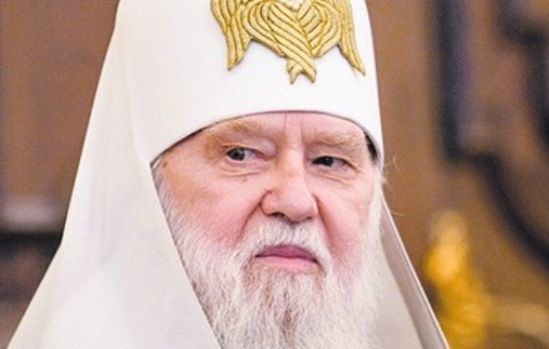
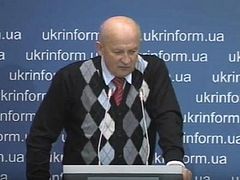
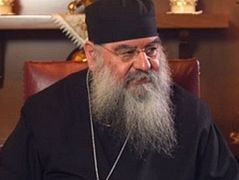
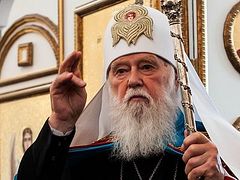
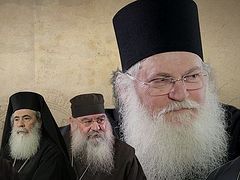
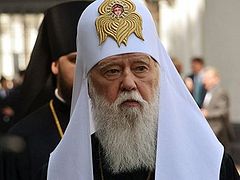
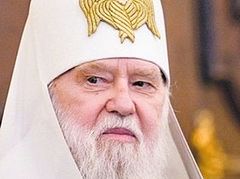
Thank you.